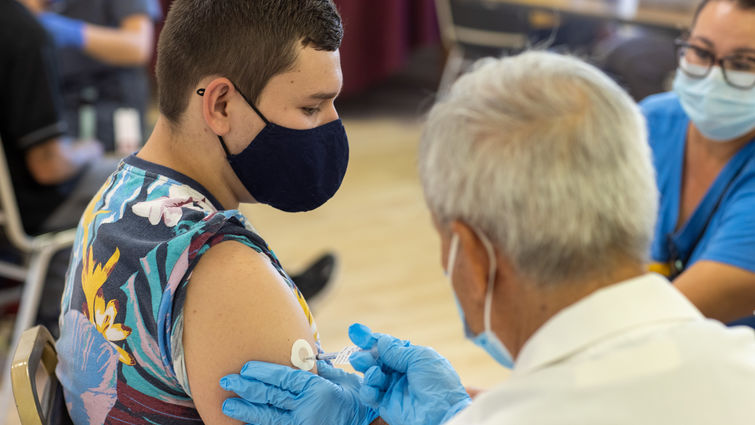

Patients with cancer and their caregivers often wonder whether it’s safe and effective to receive the flu vaccine. According to guidelines from the American Society of Clinical Oncology (ASCO), flu vaccination is a critical component of care for many individuals undergoing cancer treatment. Here’s what patients need to know.
Cancer and its treatments, such as chemotherapy and radiation therapy, can suppress the immune system, making patients more vulnerable to severe infections. Flu-related complications, such as pneumonia and hospitalization, are significantly more common in cancer patients compared to the general population.
"The flu shot helps protect cancer patients by reducing their risk of severe illness and hospitalization. While their immune response may be slightly lower, the benefits of vaccination far outweigh the risks,” says Hamid Mirshahidi, MD, division chief of Hematology-Oncology at Loma Linda University Health.
What the Research Says
The ASCO guidelines highlight several findings from their systematic review of 102 studies:
- Vaccination reduces flu severity and complications in cancer patients.
- Household vaccination is equally important to minimize exposure risks.
- The flu shot is safe for patients with both solid tumors and hematologic malignancies.
"We encourage our patients to get vaccinated early in the flu season, ideally before starting treatment. For those already in treatment, we work with them to time the vaccine for maximum efficacy,” Mirshahidi says.
ASCO recommends documenting vaccination status at the first patient visit and coordinating care among healthcare providers, pharmacists, and nurses to ensure timely and appropriate immunization. For patients undergoing hematopoietic stem-cell transplantation or receiving immunosuppressive therapies, revaccination may be required.
Frequently Asked Questions
Can the flu vaccine cause the flu?
No. The flu shot is made from inactivated or weakened virus particles, making it impossible to cause influenza.
Is it safe during chemotherapy?
Yes, but timing matters. The flu vaccine is most effective when administered during periods of lower immunosuppression.
Should my family members also get vaccinated?
Absolutely. Vaccinating household members creates a protective "cocoon" around the patient, reducing exposure risks.
Flu vaccination is a simple yet vital step in protecting cancer patients from potentially severe complications. If you or a loved one is undergoing cancer treatment, speak with your oncology care team about the best time to receive the flu shot.
For more information about vaccination guidelines for cancer patients, visit the ASCO website.
Learn more about treatments, programs, and research at Loma Linda University Cancer Center. Contact us at [email protected] or 909-558-9602 for new referrals or inquiries.


